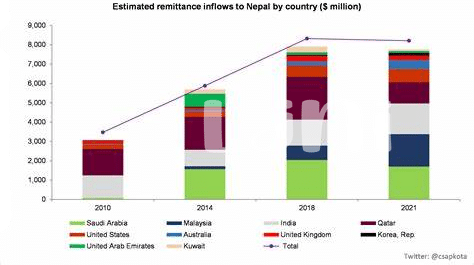Bitcoin’s Role in Shaping Financial Landscape 🌍

Bitcoin has been a transformative force in reshaping the global financial landscape. Its decentralized nature and borderless transactions have opened up new avenues for individuals and businesses to participate in the digital economy. By leveraging blockchain technology, Bitcoin offers a secure and efficient way to transfer value across borders, bypassing the limitations of traditional banking systems. As more people recognize the potential of cryptocurrencies as a medium of exchange and store of value, Bitcoin continues to play a significant role in shaping the future of finance worldwide.
Challenges of Traditional Banking Systems in Nepal 💳
Traditional banking systems in Nepal face a myriad of challenges that hinder financial inclusion for many individuals. Limited physical branches, especially in rural areas, make it difficult for people to access banking services. Additionally, the high costs associated with maintaining bank accounts and making transactions deter many from utilizing traditional banking options. Inadequate financial literacy further compounds the issue, leading to a lack of understanding about the benefits and processes of banking. Moreover, strict regulatory requirements pose hurdles for both banks and customers, often resulting in lengthy processes for basic financial transactions. These challenges collectively create barriers that prevent a significant portion of the population from fully participating in the formal financial system.
Potential of Bitcoin in Promoting Financial Inclusion 💸

Bitcoin has the potential to revolutionize financial inclusion in Nepal, bringing access to financial services to those who are currently underserved or excluded from traditional banking systems. By leveraging the decentralized nature of Bitcoin, individuals in remote areas can participate in the global economy without the need for traditional banking infrastructure. This opens up a world of opportunities for small businesses, entrepreneurs, and individuals looking to send and receive money securely and efficiently.
With Bitcoin, individuals can have more control over their finances, access to a wider range of financial products, and lower transaction costs compared to traditional banking methods. This has the power to uplift communities and drive economic growth by promoting financial inclusion at a grassroots level. As more people in Nepal embrace Bitcoin as a means of financial empowerment, the potential for a more inclusive and accessible financial landscape in the country grows exponentially.
Regulatory Hurdles and Adoption Barriers 🚧

Bitcoin’s disruptive potential in revolutionizing financial systems faces significant challenges in Nepal. Regulatory hurdles and adoption barriers loom large, hindering the widespread integration of Bitcoin into the traditional financial landscape. The lack of clear regulatory frameworks and skepticism from established institutions pose formidable obstacles to the mainstream acceptance of this digital currency. Navigating these barriers requires proactive engagement from policymakers, financial institutions, and the wider community to explore innovative solutions that can unlock the full benefits of Bitcoin for financial inclusion.Using Bitcoin for international remittances in Mozambique showcases a compelling example of how digital currencies can transform cross-border payments, offering a glimpse of the transformative potential awaiting Nepal’s financial sector.
Success Stories of Bitcoin Empowering Individuals 💪
It was a warm afternoon in the bustling streets of Kathmandu, where Rajesh, a small business owner, had his first encounter with Bitcoin. Struggling to expand his business due to limited access to traditional banking services, Rajesh was intrigued by the potential of Bitcoin to streamline cross-border transactions. With the help of a local Bitcoin advocate, Rajesh learned how to securely send and receive payments using Bitcoin, cutting down the time and fees associated with traditional banking methods. This newfound financial freedom empowered Rajesh to explore new markets, connect with international partners, and ultimately grow his business beyond borders.
As more individuals like Rajesh embraced Bitcoin, stories of financial empowerment and independence began to emerge across Nepal. From freelancers receiving instant payments for their work to families accessing remittances at lower costs, Bitcoin became a catalyst for economic inclusion. These success stories underscored the transformative power of digital currencies in unlocking financial opportunities for individuals who were previously underserved by traditional banking systems. The path to financial empowerment may have been rocky, but for many in Nepal, Bitcoin paved the way towards a brighter and more inclusive financial future.
Future Outlook for Bitcoin in Nepal 🚀

Bitcoin has the potential to revolutionize the financial landscape in Nepal, offering a gateway to financial inclusion for many individuals who are currently excluded from traditional banking systems. With its decentralized nature and borderless transactions, Bitcoin presents opportunities for individuals to access financial services and participate in the global economy. Despite regulatory hurdles and adoption barriers, there is a growing interest in Bitcoin in Nepal, driven by the recognition of its transformative power in empowering individuals economically. As the technology continues to evolve and gain acceptance, the future outlook for Bitcoin in Nepal is promising, with the potential to drive greater financial inclusion and economic empowerment for the population.
Using Bitcoin for International Remittances in Mongolia offers a practical example of how cryptocurrencies can facilitate cross-border transactions and overcome traditional banking limitations, providing a glimpse into the future possibilities for financial inclusion using digital currencies.
